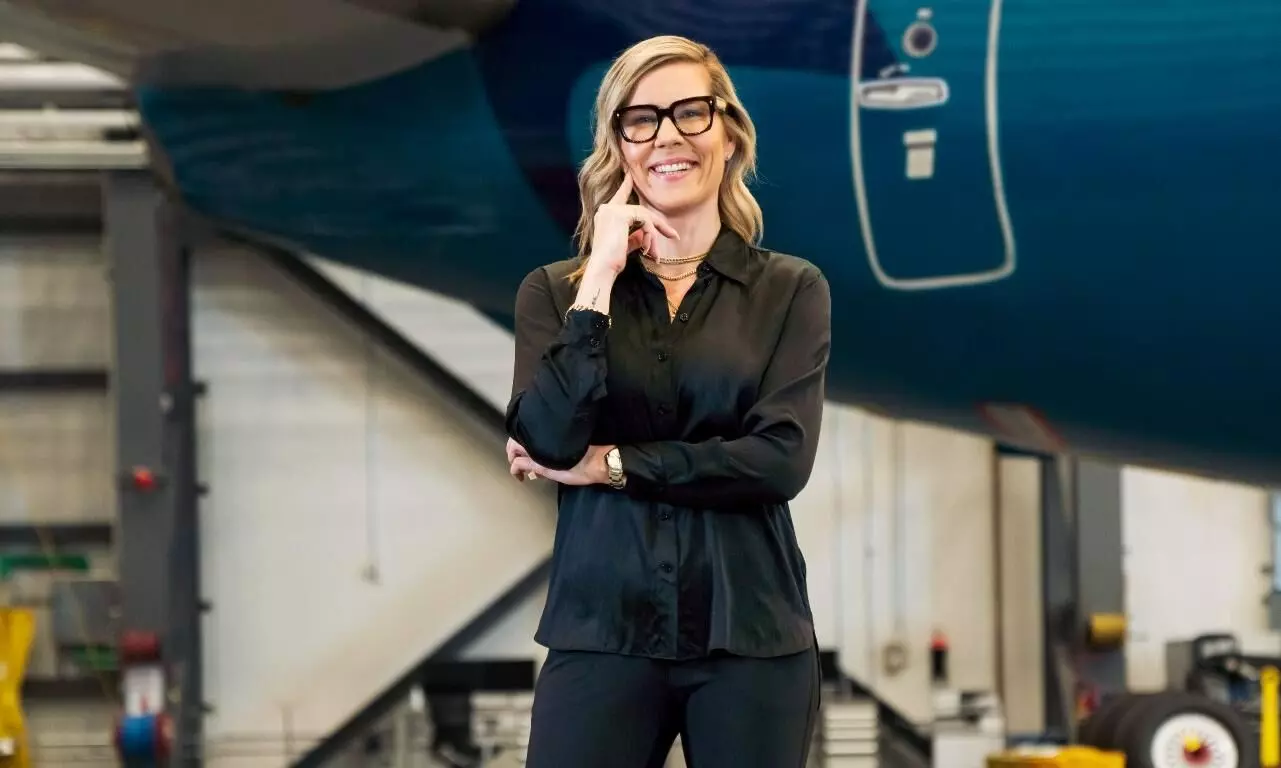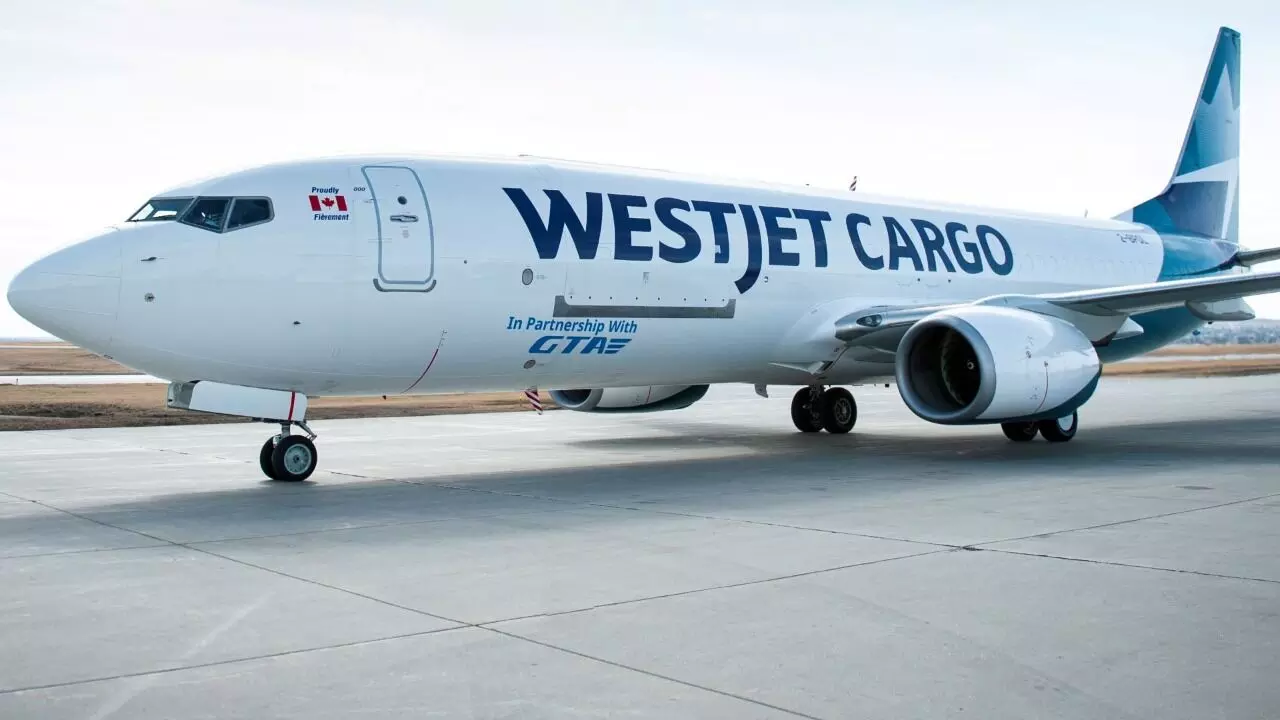
Building a cargo airline step by step
Kirsten de Bruijn, who joined WestJet Airlines to head its cargo business in May this year, says it is super exciting to build a cargo airline like a start-up company.

Kirsten de Bruijn, Executive Vice-President of Cargo at WestJet
When Kirsten de Bruijn joined WestJet Airlines, a Canadian airline headquartered in Calgary, in May 2022 to head its cargo business, she carried with her a large portfolio of air cargo experience and more than 15 years in the airline industry that includes Qatar Airways Cargo, Emirates SkyCargo and Air France - KLM Martinair Cargo. During her time at Qatar Airways Cargo, de Bruijn managed the airline's global cargo sales organization including product development and marketing and was responsible for the freighter network planning department. At Emirates SkyCargo she served as Vice President, Cargo Pricing and Interline. She completed her Bachelor's degree from Zuyd Hogeschool and Global Business Consortium programme study from London Business School. On the sidelines of the IATA World Cargo Symposium in London last month, Reji John spoke to Kirsten de Bruijn, Executive Vice-President of Cargo at WestJet, in an exclusive interview for The STAT Trade Times. Edited excerpts.
What has been the brief to you when you joined WestJet as the head of cargo?
It was very simple. We want to build our logistics arm within WestJet. It has been a passenger airline for the last 25 years. Canadian market has been much underserved with cargo capacity and we basically want to bring in a change. WestJet had already placed an order for four aircraft and they are going through certification right now. Our aim is to come up with a strategy for the coming years and a long term plan. But I've only started four months ago, so I'm still working on that.
It's been four months into your current role and how do you see your role taking shape?
Good. I am getting to know the airline and also the Canadian market. It is not as straightforward as global air cargo with 99.9 per cent forwarding. Inter Canada doesn't need freight forwarders because it's obviously domestic. So we have a lot of direct shippers that we serve. So it's a different customer profile. So I'm really getting to know the customer segmentation of the Canadian markets and WestJet Cargo. I am reviewing the team and really investing in human capital. So I need a little bit more time, but we are getting there.
Can you briefly tell us the current cargo operational capabilities of WestJet?
We have four freighters as of now. But we're quite a large airline; we have about 180 plus passenger planes. So it's not that we haven't been doing cargo. We have been doing cargo since the existence of WestJet but on the narrow body aircraft. We also have the B787-9s; so we do have wide body capability as well. We've started our journey with four 737-800BCFs (Boeing Converter Freighters), which we're hoping to start by next year after receiving the final aircraft certification. This is not yet a registered aircraft type in Canada.

WestJet has 4 737-800 Boeing Converter Freighters that are undergoing certification in Canada now.
Tell us about the overall cargo demand within Canada; a much underserved market as far as freight is concerned.
It is a very large country and so serving that market you need aviation; you need air cargo. So really it is a matter of understanding the customer base. We do a lot of direct business with people who are shipping their goods or animals from A to B. We do work with freight forwarders, of course, for the international business mostly. We transport various products from pharma to general cargo to animals. We do a lot of animal transportation for the direct person like you and I. It is required and there is demand for more capacity. And still, we see supply chain challenges hitting us as a country because of the large land space. Then there is weather. Let's be fair, I mean, moving to the west of Calgary is going to be interesting when the winter comes. So in that regards, it's required. And we look forward to the future.
What can we expect from the recent partnership with GTA and how such a partnership will significantly benefit WestJet Cargo customers?
GTA has a vast majority of companies that are all in the logistics space. So by partnering up with somebody that has the capability and knowledge from handling to freight forwarding really adds value to the value proposition of WestJet. We are also handled by them in our three big hubs. We recently announced the opening of GTA-dnata in Vancouver. We are opening the Calgary location in the first week of October and we are already handled by them in our Toronto hub. So by partnering with a company that has such vast experience really benefits the way we can offer the proposition to our customers
Do you have any specific focus areas in terms of a product or a commodity category?
So I think intra-Canada there's obviously a lot of eCommerce but also a lot of perishable cargo. So those are two commodities that we see dominating the domestic transportation. And the good thing is what we don't specifically have because the wide body we have today is not really positioned intra-Canada is that we're moving from being a loose cargo carrier into our domestic Canada to pelletized commodities. We can then really add value in pharmaceuticals and pelletize perishables more than what we have been doing today. So that's really the new proposition that we have. As soon as we get our freighter certified we will have the freighter schedule, which is expected in the beginning of next year, we will be able to offer palletized cargo to our customers.
What is the long term vision of WestJet Cargo with a fleet of freighter?
I am working on that. I started four months ago. So one of the assignments that I got and into the brief was what the long term vision is for WestJet Cargo. So next interview, you can ask me that, and I should have a little bit more clarity on that; a bit too early to tell now.
What will be some of your specific value-added services for your Canadian shippers once you have the freighter fleet operational by next year?
So if you look into the eCommerce space in Canada, I think being able to offer the same day product with passenger capacity, obviously, depending on the load factor, that cargo might be bumped off because of payload or space. And if you really want to be in that domestic same-day market, because when people order stuff online, they want it now and not tomorrow. The freighter is going to give us that capability. It means very high on time performance. I think that is one of the first focus points that we will have to offer to our first and last mile partners.
You worked with very large airlines in the past; how do you now create excitement in your professional life as you build a start-up cargo airline step-by-step?
The biggest difference is that it's small now; but it is like a start-up. So in all the bigger airlines that I've worked for, departments were in place, processes were in place and manuals were in place. WestJet needs to learn all of those things. So in the last four months I learned a lot because I don't have a department to go to. So you talk about network planning, scheduling and even operations in the proper manuals. It's like a blank slate. So it's like a start-up company; starting your own airline. So it's super exciting. And I find myself in discussions that I've never had to do before because everything was there already. So that is giving me the energy to go and start your own freighter operation. Like starting your own airline, which is great.
How do you keep yourself and your team prepared for uncertainties?
I am generally a very positive person. So I don't think about the glass being half empty. And so giving the team the inspirational leadership that they want to come to work and actually make this happen because we need doers in WestJet. We are doing so many things and learning many new things and I think the road to success is very positive. People see that we, as a company, are investing in cargo. So the team that is currently there and the new members we are bringing in have a very positive feeling about the company. So that's already a very positive story. And obviously, I try to bring that message across to the team. They are also super excited that new team members are joining because they can learn from each other. So that's really like a breath of fresh air within our team.

